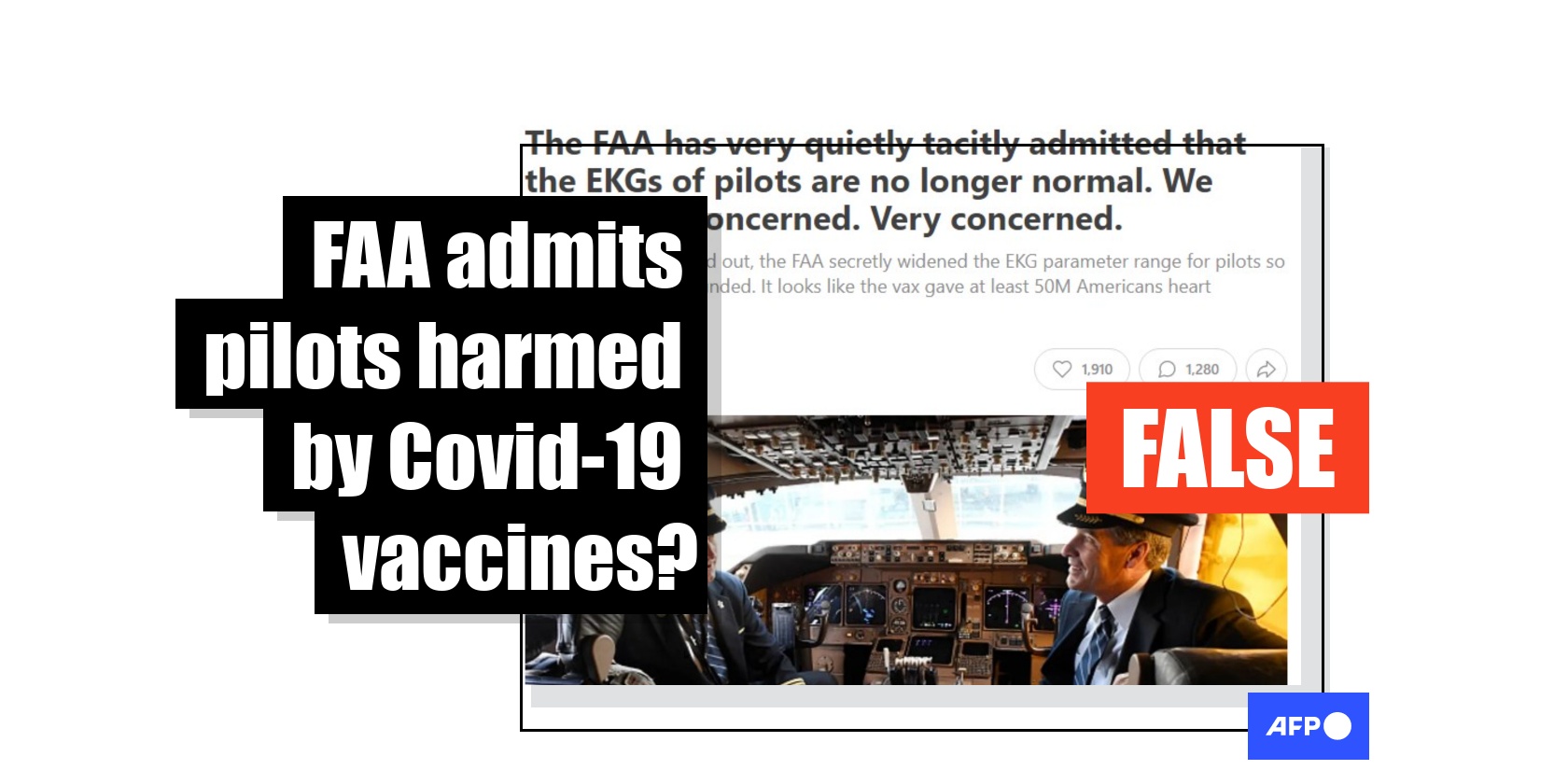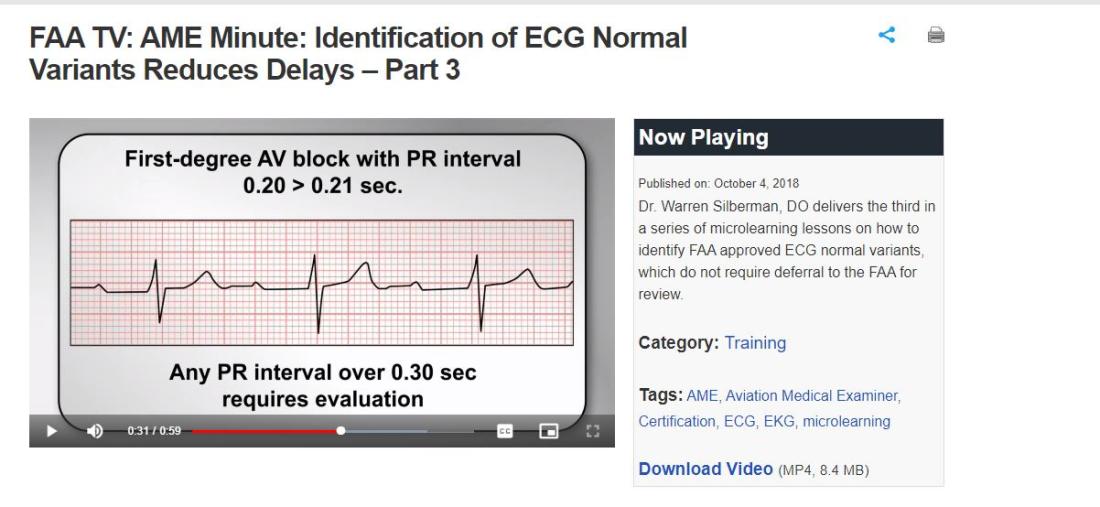
US pilot health guidance predates pandemic
- This article is more than three years old.
- Published on February 2, 2023 at 17:26
- Updated on February 2, 2023 at 18:05
- 3 min read
- By Alexis ORSINI, AFP France, AFP USA
- Translation and adaptation Marisha GOLDHAMER
"The FAA has very quietly tacitly admitted that the EKGs of pilots are no longer normal. We should be concerned. Very concerned," says the headline of a January 17, 2023 Substack post from Steve Kirsch, a US entrepreneur who has promoted unproven drugs to treat Covid-19.
"After the vaccine rolled out, the FAA secretly widened the EKG parameter range for pilots so they wouldn't be grounded. It looks like the vax gave at least 50M Americans heart damage."

Fox News host Tucker Carlson cited Kirsch's post in a January 17 segment on his show. The claim also spread on Twitter, Facebook, Instagram and TikTok -- including in French.
The posts follow other assertions that Covid-19 vaccines are responsible for pilot deaths, which aviation agencies previously told AFP are unsupported.
"The Federal Aviation Association (FAA) has no evidence of aircraft accidents or incapacitations caused by pilots suffering medical complications associated with Covid-19 vaccines," a spokesperson said on January 24 via email. "The FAA's Federal Air Surgeon determined that pilots and air traffic controllers can safely receive the Pfizer, Moderna, Johnson and Johnson or Novavax vaccine."
Change made in 2017
Kirsch, whom AFP has previously fact-checked, bases his claims on an October 2022 update to the FAA's Guide for Aviation Medical Examiners.
The change concerned the medical policy for pilots who suffer an atrioventricular (AV) block, which prevents the heart from effectively pumping blood and can lead to fainting or difficulty breathing. Doctors diagnose the condition using an electrocardiogram test, also called an EKG or ECG.
The FAA requires pilots to submit extensive medical documentation before they are certified to fly. Among the data include pilots' PR interval, which measures how long it takes for electrical signals to pass from the atria to the ventricles.
The agency did update the highest interval it will accept from an ECG without further examination. But that guidance has been in place for years.
"In October 2022, we updated the Guide to Aviation Medical Examiners to reflect the change we made in 2017," the FAA said in a January 26 email. "Until then, the Guide did not contain any numbers for the interval."
The change -- made years prior to the Covid-19 pandemic -- came "after discussions with our cardiology panel, which included FAA doctors as well as external practicing cardiologists," the agency added.
"We determined we could safely increase the range from 200 (milliseconds) to 300 (milliseconds) without requiring a pilot exam," the FAA said.
The agency told AFP it implemented the change in 2018 and 2019, citing an October 2018 video in which a doctor from the US state of Oklahoma detailed the policy.
"Any first-degree AV block with a PR interval less than .30 seconds is a normal variant," says Warren Silberman, who served as the FAA aeromedical certification chief for 14 years, in the clip.

While a normal PR interval is typically between .12 and .20 seconds, experts told AFP .30 seconds is not cause for concern if someone is asymptomatic.
Pascal Defaye, a cardiologist at the University Hospital of Grenoble in France, said a longer PR interval indicates a slowdown, but not necessarily a block. Xavier Jouven, head of Cardiology at the European George Pompidou Hospital in Paris, agreed.
"When the PR is slightly lengthened, which can go up to 300 (milliseconds), this corresponds to a first-degree atrioventricular block," he said. "But it is not serious at all."
Myocarditis
Kirsh links the FAA guidance update to myocarditis, or inflammation of the heart. Public health authorities are monitoring the condition as a rare side effect of Covid-19 vaccination.
But physicians do not use the PR interval to diagnose myocarditis.
"When you suffer from myocarditis, it is the ventricle that is affected. The PR interval is not modified in the event of myocarditis," Jouven said.
Additionally, the symptoms of myocarditis -- such as fever and inflammatory pain -- are different from those with a prolonged PR interval.
The US Centers for Disease Control and Prevention recommends Covid-19 vaccination to protect against severe illness and hospitalization, saying the benefits outweigh the risks of infection.
More of AFP's reporting on vaccine misinformation is available here.
February 2, 2023 This article was revalidated to resolve a technical issue.
Copyright © AFP 2017-2026. Any commercial use of this content requires a subscription. Click here to find out more.
Is there content that you would like AFP to fact-check? Get in touch.
Contact us




